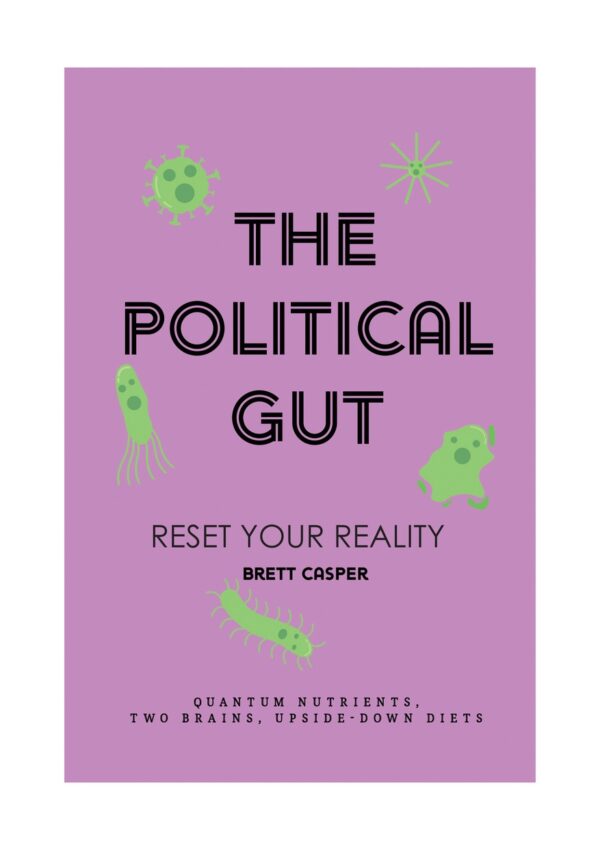It’s great to be back with you all! Today, I’m thrilled to present another insightful article from our expert series, brought to you by Calming Idea. We’ll be delving into the powerful interplay between mindset and effort, and discovering how a shift in perspective can completely reshape our understanding of what effort truly means. Ready to explore this with me?
Table of Contents
Our mindset shapes the way we perceive and respond to the world around us. It influences how we value our own efforts, determine what is worth striving for, and handle challenges in life. Whether we view effort as an obstacle or an opportunity often depends on our emotional and mental state. A positive mindset can make tasks feel lighter, while a negative one can make even small efforts seem overwhelming. In this article, four experts share their insights on how mindset shifts can redefine the meaning of efforts and impact our personal growth.
Key Highlights of Expert Insights About Mindset and Effort
- Mindset influences the perception of effort: A low-energy mindset makes tasks feel harder, while a high-energy state makes them feel effortless.
- Emotional states affect how we value our efforts: Negative emotions like grief and guilt can make an effort feel unworthy, whereas gratitude and joy can enhance motivation.
- Self-compassion is essential: Acknowledging effort during tough times is an act of self-love and growth.
- Reframing mindset helps in overcoming struggles: Developing gratitude, adjusting self-talk, and valuing effort in all circumstances can create a positive shift.
The Power of Mindset In Shaping Effort
The way we perceive effort is deeply connected to our mindset. A fixed mindset can make struggles seem like signs of failure, while a growth mindset sees them as opportunities to improve. By shifting our perspective, we can transform effort from something exhausting into something empowering. Understanding this connection allows us to navigate challenges with resilience, making progress feel more rewarding.
Now, let’s explore expert insights on how mindset changes the meaning of effort.
Anna Anderson- Psychiatric Mental Health Nurse

Anna Anderson is a board-certified Psychiatric Mental Health Nurse, Reiki Level II Practitioner, and the founder of The Healing Seeres. With over 10,000 hours of hands-on experience in mental health care, she has worked with individuals facing anxiety, depression, ADHD, autism, and life transitions. As a licensed nurse coach, Anna integrates evidence-based practices with a compassionate approach, helping individuals navigate their mental well-being with confidence and resilience.
Her Insight on Mindset and Effort
The Influence of Mindset on Perception and Valuation of Effort = Self-Love
Mindset is an ebb and flow, much like the natural cycles we witness in everything in the world. The energy we carry within ourselves influences how we perceive and value the efforts we put forth. When one’s mindset vibrates at a lower frequency, filled with emotions like guilt, shame, sadness, or grief (while they are all valuable emotions), the weight of their efforts feels heavier, denser, and more difficult to exert. For example, if I am currently experiencing grief, the effort I perceive to complete tasks is exponentially greater than if I were in a neutral or positive emotional state. This perception isn’t merely an illusion; it reflects the reality of having to exert more energy because the baseline frequency is below normal.
In contrast, when one’s mindset is elevated, resonating with gratitude, joy, peace, thankfulness, and abundance, the perceived effort required diminishes. Living and existing in these high-frequency states means our energy vibrates above our baseline (for the average person). As a result, the amount of effort needed to accomplish tasks is reduced, as we are already operating at a higher energetic level.
Consider the types of effort involved: Is it the energy required to perform daily tasks such as brushing one’s teeth or showering, the effort exerted in one’s work or interpersonal relationships? For instance, a person grieving the death of a loved one may find it nearly impossible to muster the energy to engage in activities of daily living such as brushing their teeth or making themselves meals. The effort needed to get out of bed, answer phone calls, or go outside is significantly greater due to their depleted energetic state. Conversely, if I have just been promoted at work, got my dream job, or fell in love, the subsequent efforts seem lighter and more manageable because I am already vibrating with feelings of abundance and gratitude.
When individuals are in a lower frequency state, while it takes them more effort to initiate change, they may undervalue their efforts. This is often due to the misconception that if things require work, they are “not meant to be”. For example, many people believe that if they aren’t innately happy, something is inherently wrong with them, failing to understand that happiness requires effort, practice, and cultivation. Our genetic makeup predisposes us to focus on negative aspects for survival. Therefore, when people are in mindsets of grief, guilt, or shame, they may undervalue their efforts, adhering to “should” statements like “I shouldn’t feel this way.” “If I feel this way it means I will always feel like this.” or “I shouldn’t get up if I don’t feel like it.”
Understanding that exerting effort during these challenging times is both validating and compassionate is crucial for cultivating self-love. It highlights the importance of self-compassion, acknowledging that the energy spent in overcoming difficult periods is invaluable. On the other hand, when someone is in a high-frequency state, such as awe, gratitude, or joy, they may not place as much value on their efforts, because tasks seem more effortless, and there is less focus on the energy expended. The true measure of gratitude and self-compassion lies in recognizing and valuing the efforts made during life’s harder times…because this is when more effort is required and thus the most effort will be perceived.
In short, mindset profoundly influences how individuals perceive and value their efforts. High-frequency, positive mindsets tend to reduce the perceived burden of effort, while low-frequency, negative mindsets amplify it. This dynamic underscores the importance of fostering positive emotional states to enhance productivity and well-being and recognizing the value of efforts made during difficult times as acts of profound self-love.
Faith Foo- Real life Coach and Therapist
Faith Foo is a Malaysian Licensed Counselor and certified EMDR and trauma therapist. She specializes in helping individuals navigate emotional challenges through a compassionate and supportive approach. At Faith Foo Counseling, she provides a safe space for clients to process past experiences, develop resilience, and move forward with confidence. Her expertise in mindset shifts and emotional well-being empowers individuals to redefine their struggles and embrace personal growth.

Her Insight on Mindset and Effort
We Are A Product of Our Own Choice
Over twenty years ago, during my youth, I briefly dabbled in creativity. I DJ’d for and many complimented my voice, suggesting I could be a radio jockey. During covid, I attempted to produce a podcast series on YouTube, I received similar praise, with people describing my voice as soothing. These experiences made me realize how often I’ve been blessed with gifts and talents, a realization that feels both funny and strange, as I never considered myself particularly “talented.”
Reflect upon an instance when someone complimented you. How did you react to the moment? Receiving compliments often feels fleeting. It’s like a seed landing on your head, easily blown away by other problems or concerns. Negative feedback, however, feels like a seed deeply rooted in your gut, growing into a troublesome tree.
Think about this:
- Positive feedback: “Hey, nice work! Good idea!” This usually only brings us a temporary sense of happiness, perhaps lasting a day or two, or maybe a week for some.
- Negative feedback: “I don’t think that will work. That’s not such a good idea.” This can leave you feeling defeated and rejected for a long time, even indefinitely.
Similarly, a compliment like “Nice haircut!” is easily forgotten, while a critical remark like “I don’t think the color of your shirt matches you today” can linger in your mind and ruin your days. We crave compliments, yet often dismiss them. We despise criticism, yet cling to it. This strange behavior begs the question: Why?
If you’ve experienced this too, let’s make a conscious mindset change. Take a pen and paper and list all the positive feedback and accomplishments you’re proud of. From now on, consciously choose which “seeds” to nurture. Let negative feedback be carried away by the wind, while you cultivate the positive, watering it with self-love and confidence.
Strategies For Shifting The Mindset:
- Journaling: Keep a journal where you habitually record your accomplishments, positive feedback, and moments of pride.
- Mindful Appreciation: Foster a practice of mindful gratitude, where you intentionally acknowledge and savor your positive experiences.
- Challenge Negative Thoughts: Identify and challenge negative thought patterns, such as self-criticism and perfectionism.
- Focus on Progress, Not Perfection: Focus on the importance of celebrating progress and learning from setbacks rather than striving for unattainable perfection.
At the end of the day, we’re all writing our own stories. We are the architects of our own lives, not victims of circumstance. Our mindset is like the lens through which we view everything we do. And sometimes, just changing that lens a little bit can make all the difference in how we see and value our own efforts. The smallest decisions can have a profound impact on our lives.
Erin Morse- Psychology Coach and Yoga Teacher

Erin Morse is the founder of Veda Wholistic and brings over 18 years of experience in health and wellness. As a Certified ICF Positive Psychology Coach, Somatic Stress Release Practitioner, and Yoga Teacher, she specializes in helping individuals uncover the root causes of mental, emotional, and physical struggles. With a background in cardiac rehabilitation and holistic wellness, Erin empowers people to cultivate resilience and embrace their most authentic selves.
Her Insight on Mindset and Effort
Mindset is a powerful force that shapes how people perceive and value their efforts. When we adopt a growth oriented mindset—believing that effort leads to learning and progress—we begin to see challenges as opportunities rather than obstacles. On the other hand, a fixed mindset can cause us to downplay or dismiss our efforts if the results don’t immediately align with our expectations.
In my work at Veda Wholistic, I’ve seen how this plays out, especially with clients managing stress or navigating health challenges. For example, I supported a client in cardiac rehabilitation who felt disheartened by how slowly her strength was returning after surgery. She viewed her small daily practices, like gentle breathing exercises and mindful movement, as insignificant. By helping her shift her mindset—focusing on how these practices were steps toward healing rather than a measurement of her current ability—she began to value and celebrate her efforts, which created momentum and a greater sense of agency in her recovery.
One strategy I often encourage is cultivating self-acknowledgment. This might look like pausing at the end of the day to reflect on what you’ve done well, no matter how small it seems. Practices like journaling about small wins, celebrating micro-moments of progress, or reframing “mistakes” as learning opportunities can help reinforce the idea that every step forward matters. This along with checking in with our nervous system state (or energy) can be a daily practice that is deeply nourishing.
Your mindset acts like a filter—shaping how you experience and interpret your efforts. By choosing a lens of growth and self-compassion, you can create a foundation for resilience, confidence, and meaningful progress.
Sophie Power- Mental Health Coach
Sophie Power is the founder of Power to Bloom and a dedicated mental health coach passionate about helping women overcome burnout, anxiety, and depression. Drawing from her own journey, she believes mental health is a strength to be embraced. Through a holistic approach that integrates life coaching, fitness training, and nutrition, Sophie empowers individuals to reconnect with their inner resilience, simplify their path to wellness, and thrive in all aspects of life.

Her Insight on Mindset and Effort
How Mindset Changes the Meaning of Efforts: Embracing Acceptance to Unlock Your Strengths
Pressure. It’s a word that permeates every corner of our society. We feel it in our careers, our relationships, our bodies, and our goals. We’re told that success requires relentless effort, perfection, and a mindset of “work harder, push further.” But what if that very pressure is what’s holding us back from truly thriving?
As someone diagnosed with depression and anxiety at just 16 years old, I’ve spent the last 20 years wrestling with that question. For most of that time, I believed I had to work harder than everyone else to compensate for my struggles. I poured energy into chasing success the way society defined it—grinding, striving, and often burning out in the process. It wasn’t until I embraced an acceptance mindset that everything began to shift.
The Power of Acceptance: Permission to Be Where You Are
Acceptance isn’t about giving up; it’s about letting go of the unrealistic expectations and pressures we place on ourselves. It’s about acknowledging that where you are right now is okay. When you release the constant pressure to be somewhere else, you create space to work with your strengths rather than against them.
For me, that meant recognizing that my brain works differently than others, and that’s not a weakness—it’s a superpower. I realized I didn’t have to follow someone else’s path to success. I could create my own. This mindset shift allowed me to approach my goals in a way that aligned with my unique strengths, instead of feeling like I had to meet an impossible standard.
Small Wins, Big Shifts: Redefining Effort
One of the keys to changing your mindset is focusing on small, achievable steps. When you stop measuring success by society’s milestones and start celebrating daily wins—no matter how small—you begin to build momentum.
In my coaching program, Power to Bloom, this principle is central. Instead of overwhelming my clients with lofty goals and impossible timelines, I guide them to simplify their lives and embrace balance. It’s about creating a life that feels manageable and meaningful, not one that’s weighed down by pressure.
When you approach life with this mindset, your efforts stop feeling like a constant uphill battle. Instead, every step forward becomes a source of pride and motivation. You’re no longer trying to prove your worth; you’re simply nurturing your growth.
Depression and Anxiety as Strengths
This perspective doesn’t just change how you work—it changes how you see yourself. For years, I viewed my depression and anxiety as obstacles to overcome. But as I learned to embrace acceptance and work to my strengths, I discovered something profound: my mental health challenges are also my greatest strengths.
Depression has given me a deep well of empathy and love for others. Anxiety has honed my ability to anticipate challenges and think critically. When I began to turn that empathy and care inward—to show myself the same compassion I offer to others—I unlocked a power I never knew I had.
This is the philosophy behind Power to Bloom: helping women with depression, anxiety, and burnout not only heal but thrive by embracing their unique strengths. We don’t need to work harder or fit into someone else’s mold of success. We need to work differently, with simplicity and balance, to create a life that feels authentic and fulfilling.
Success on Your Terms
If there’s one thing I’ve learned, it’s that success doesn’t have to look the way society tells us it should. For me, success is running a business that aligns with my values, getting in shape in a way that feels sustainable, and learning new skills in a way that works for me. My success doesn’t look like a social media highlight reel—and that’s okay.
By shifting my mindset from pressure to acceptance, I’ve not only transformed my own life but also helped countless women find their path to balance and fulfillment. Through small, manageable steps, my clients rediscover their power, heal from burnout, and create a life that feels truly theirs.
Unstoppable: Turning Love Inward
The truth is, those of us with depression and anxiety are some of the strongest, most compassionate people on the planet. When we stop letting pressure define our worth and start working to our strengths, we become unstoppable.
If you’re ready to embrace acceptance, simplify your life, and find your power to bloom, know this: You don’t have to fit someone else’s definition of success. You are enough, just as you are, and with the right mindset, you can create a life that feels vibrant, balanced, and completely your own.
In the end, mindset doesn’t just change the meaning of effort—it changes the meaning of life.
Three Ways to Start Shifting Your Mindset Today
If you’re ready to begin working toward a mindset of acceptance and balance, here are three simple yet transformative steps you can take right now:
1. Discover Your True Values
Take some time to reflect on what truly matters to you in every aspect of your life—work, relationships, health, and personal growth. What brings you joy? What makes you feel fulfilled? When you understand your values, you can align your efforts with what’s meaningful to you rather than chasing external expectations. This clarity is a powerful way to simplify your life and focus on what truly matters.
2. Respect Yourself Through Movement and Nutrition
Your body and mind are deeply connected, and treating your body with respect is a vital step in transforming your mindset. Incorporate gentle, intentional movement into your daily routine—whether it’s a walk, a yoga session, or any form of exercise you enjoy. Pair this with nourishing, whole foods to support both your physical and mental health. A healthy body fosters a healthier mind, which will help you put effort into your goals with greater ease and clarity.
3. Start Journaling Daily
Journaling is one of the most powerful tools for self-reflection and personal growth. By writing down your thoughts and feelings each day, you can gain perspective on your patterns, identify what’s holding you back, and celebrate your wins. It wasn’t until I began reading back through my own journals that I realized where I was making mistakes in my healing journey. If you need support to get started, my Instagram @inner_bloom_collective offers a free 100 journal prompts document to guide you on your journaling journey. Remember, journaling isn’t about perfection—it’s about progress and understanding.
By focusing on your values, nurturing your body, and reflecting through journaling, you can begin shifting your mindset to one of acceptance, self-respect, and sustainable effort. These small but impactful steps will set you on the path to a simpler, more balanced life where you can truly thrive.
Final Words
The way we perceive effort is deeply tied to our mindset. When we shift our thinking from viewing effort as an exhausting necessity to a valuable investment in ourselves, we cultivate resilience and self-growth. By practicing mindfulness, reframing our struggles, and recognizing the importance of our energy levels, we can redefine the meaning of efforts in our lives. As we continue to gather insights from more experts, this article will evolve with additional perspectives on how mindset influences effort. Stay tuned for updates that will further enrich this discussion.
Now It’s Your Turn
How do you view effort in your daily life? Share your experiences in the comments below, and let us know which mindset shifts have helped you navigate challenges better. If you found these insights helpful, share this article with someone who might benefit from a new perspective on effort and success!

SEO Executive with a strong focus on website management. Passionate about content creation, particularly in daily lifestyle topics. An avid reader dedicated to continuous learning and staying up-to-date with the latest trends and best practices in digital marketing and SEO.





